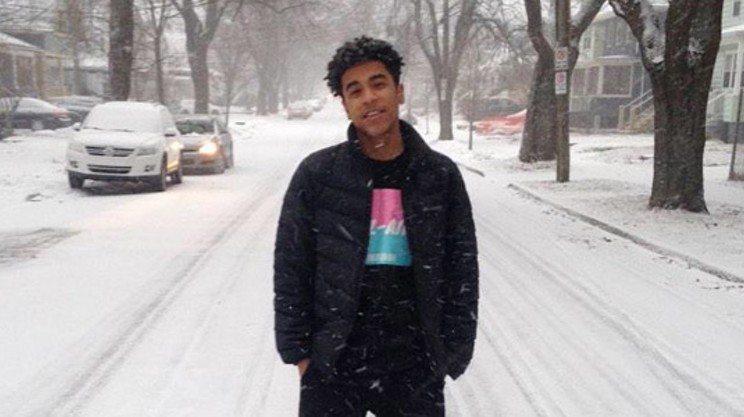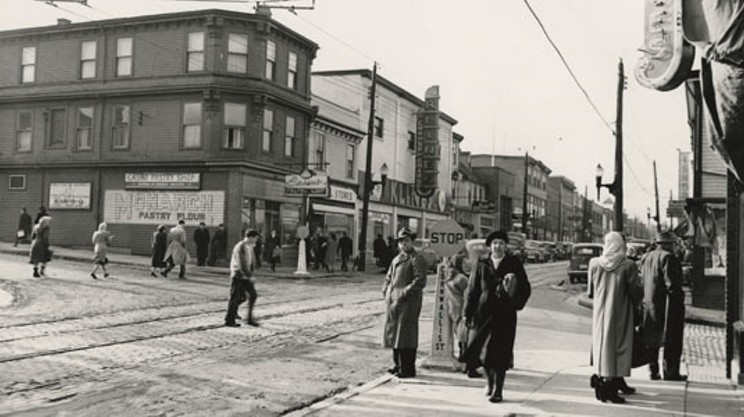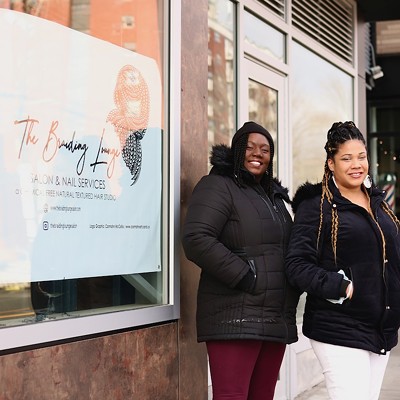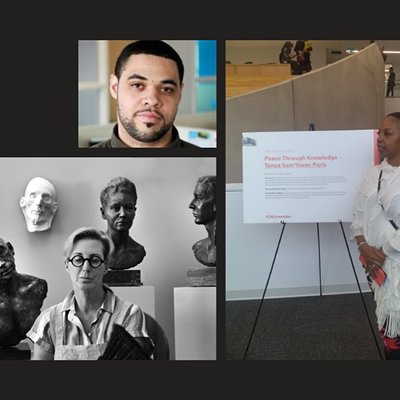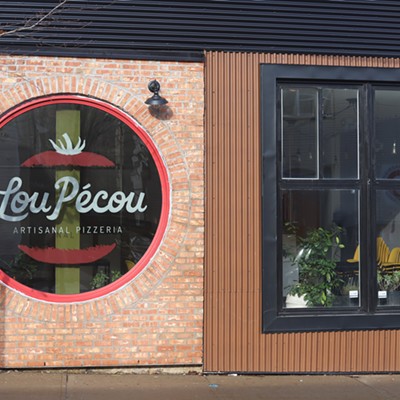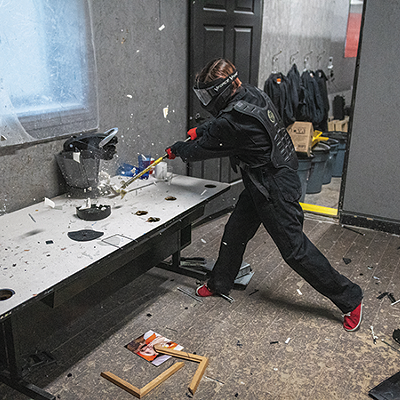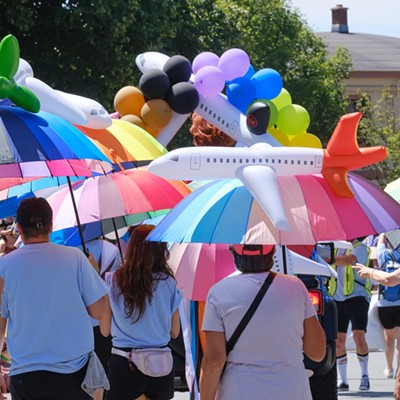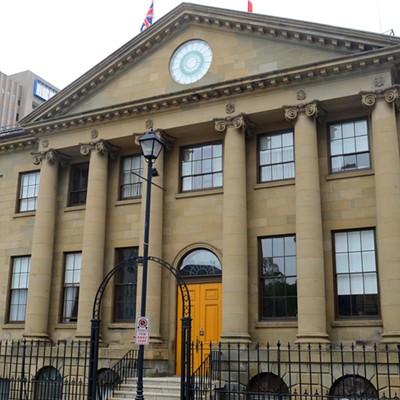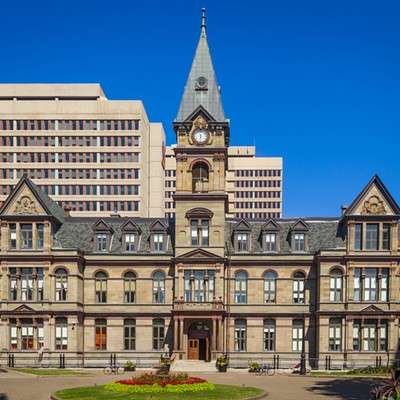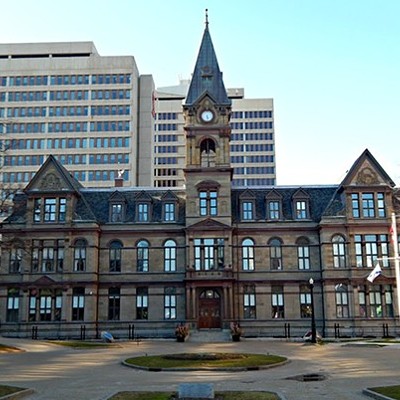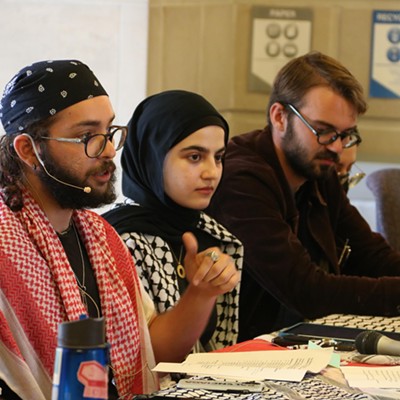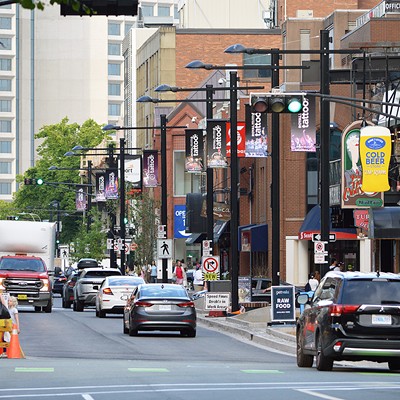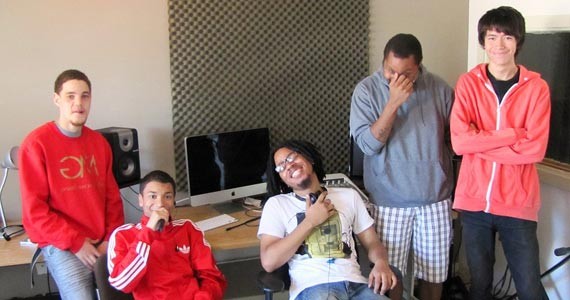
Seth Glasgow will never forget the day Got A Voice, the official radio station of the Gottingen 250 festival, started broadcasting. He was an intern helping to run the show when the fire alarms were triggered in the North Memorial Public Library, where they had set up. Everyone evacuated, and once they were back inside up and running again, the alarms went off a second time.
"At that point, the library said they had to shut everything down," says Glasgow.
They had to find another location to keep broadcasting for the day. But after that, the rest of the week went smoothly. More than smooth—the community broadcast was so popular, so well-received, the group will continue broadcasting as Halifax's newest community radio station.
Got A Voice, a project of iMOVe Arts Association, was born of a desire for the youth and community members in the Gottingen area to tell their stories during the recent celebration of Gottingen Street's 250th year.
Says Glasgow, "We had random people come in and give shout-outs or just sit down and talk with us. We had people from all over the neighbourhood come in, and I think that's what made it successful, because anyone could literally walk in and say what they wanted to say."
Charlene Gagnon, the youth program director at iMOVe, says they hope to have a website for the station up and running in the next few months.
The Industry Canada-supplied FM channel they were using during the festival is designated for special events only, and applying to the Canadian Radio-television and Telecommunications Commission for their own channel would be an expensive, two-year process. In the meantime, they will broadcast from the web, both live and with podcasts, from the Uniacke Centre for Community Development. Twenty-four hours a day, seven days a week, playing their favourite music and focusing on the voices that aren't usually found in the media.
"If people want to learn something about cultural communities in their own city that never get airtime, that aren't part of the mainstream, then they should tune in," says Gagnon.
Radio is not a dying medium. The CRTC projects a high demand for FM radio frequencies in the next year, and it's a proven tool for community development all over the world. The group is applying for more funding from the United Way, and donations are always welcome.
The station will continue the conversations that began during the festival, and give youth a platform to share their stories and gain media skills while they do it. The youth know their neighbourhood has a bad reputation, but they're eager to change that.
"People just assume it's a lot of negativity down here," says intern Jourdin Symonds. "I just think the radio will give people a chance to voice their opinions, things that might be on their mind, things that could fix the community, just issues in general, and I think that will give people a lot more pride, and I think that'll slowly change the community."
Glasgow agrees. "It's not a bad community, and Got A Voice is proof of that," he says. "Even little kids no older than six or seven are getting on the radio, talking, just having fun. Because that's what Got A Voice is about. It's not a dangerous neighbourhood. We're all good people."

